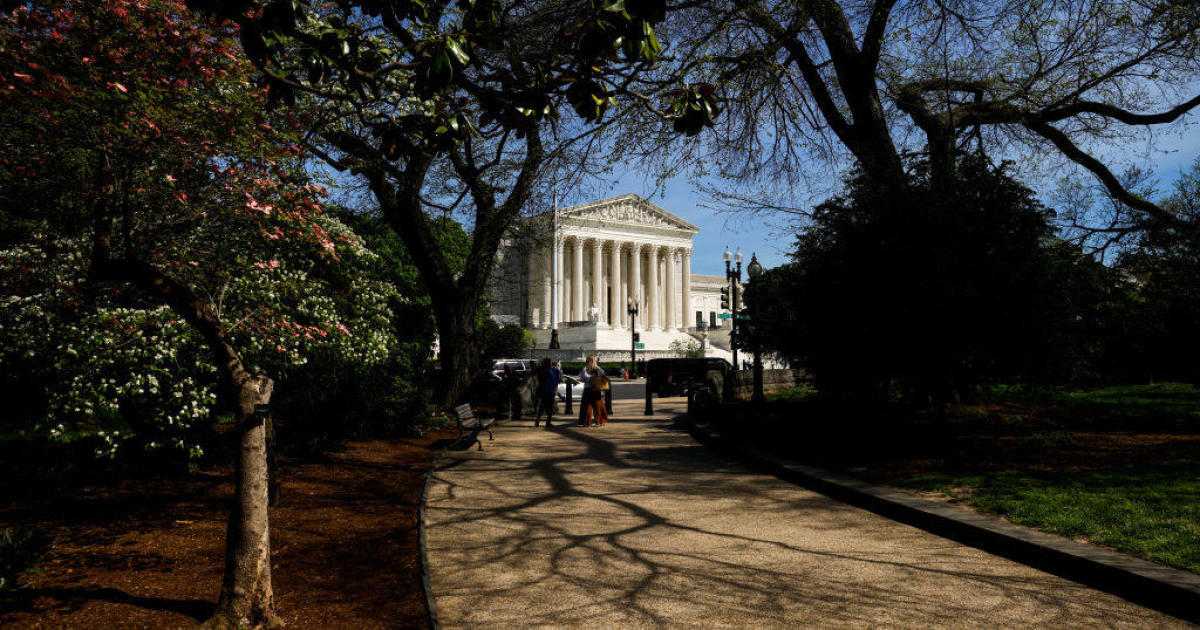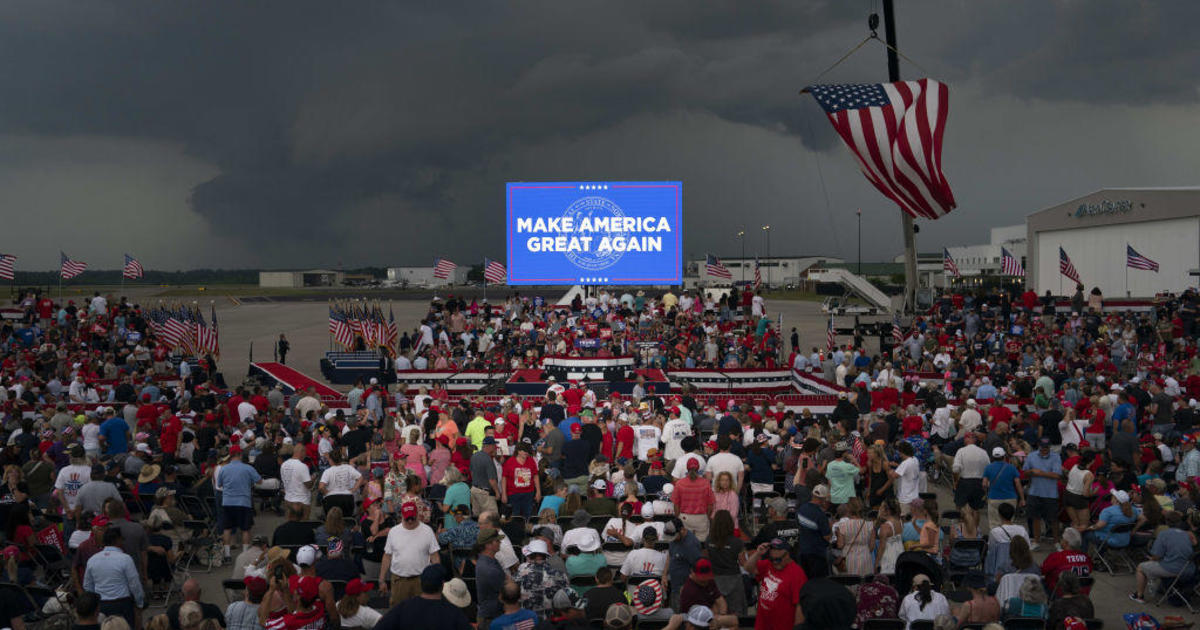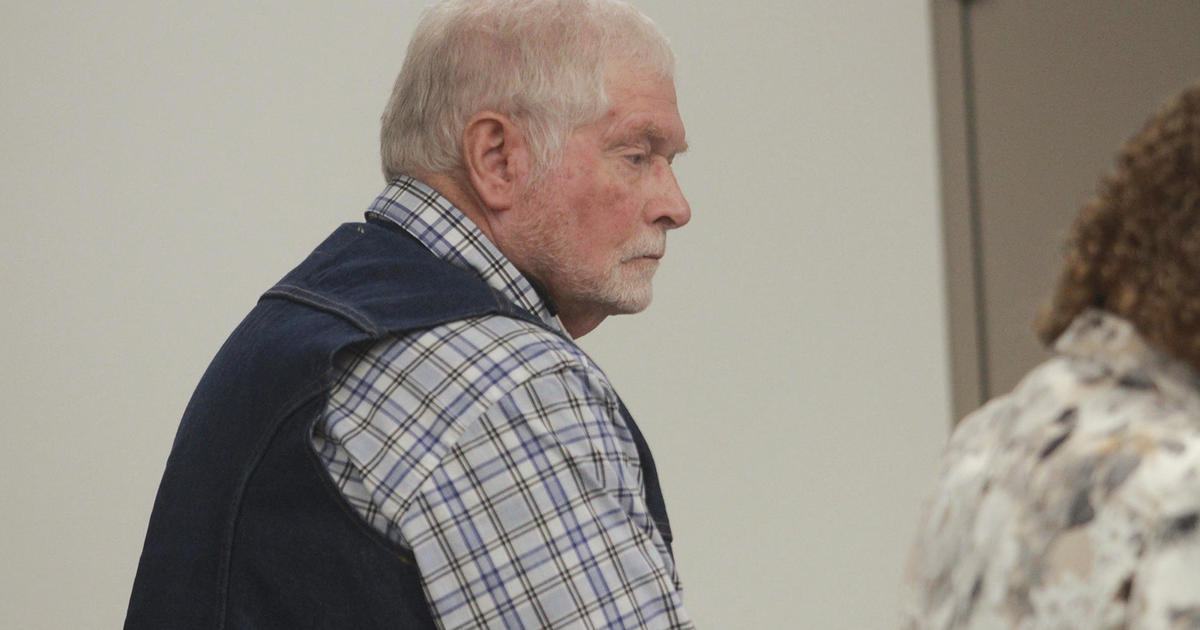Neil Gorsuch is President Trump's Supreme Court nominee
By Jan Crawford, Major Garrett and Adam Aigner-Treworgy
Donald Trump has selected Judge Neil Gorsuch to be the next Supreme Court justice, filling the vacancy left by the death of Justice Antonin Scalia almost a year ago, he announced at the White House Tuesday night.
“I am a man of my word, I will do as I say, something that the American people have been asking for from Washington for a very, very long time,” Mr. Trump said at the East Room announcement. “Today I am keeping another promise to the American people by nominating Judge Neil Gorsuch ... to be of the United States Supreme Court.”
The Denver-based 10th U.S. Circuit Court of Appeals judge has been the front-runner for several days, and Mr. Trump said Monday that he had settled on a nominee. Both Gorsuch and Pennsylvania-based Judge Thomas Hardiman, Mr. Trump’s other “finalist” for the job, were expected to be at the White House for Tuesday night’s announcement -- however, CBS News confirmed that Hardiman did not end up attending the event.
Mr. Trump praised Gorsuch’s “outstanding legal skills” and said his “academic credentials, something very important to me … are as good as I have ever seen.”
Gorsuch, 49, is a former Washington, D.C. lawyer and Supreme Court clerk educated at Harvard and Oxford who is considered a solid conservative. He sailed through his Senate confirmation in 2006, and was even introduced by both the Republican (then-Sen. Wayne Allard) and Democratic (then-Sen. Ken Salazar) senators from his home state of Colorado.
In brief remarks at the announcement event, Gorsuch praised his predecessor, Justice Scalia, as a “lion of the law.”
“Agree or disagree with him, all of his colleagues on the bench cherished his wisdom and his humor,” he said. “And like them, I miss him.”
He said he looks forward to speaking with “members from both sides of the aisle” in the Senate, and to “answering their questions and hearing their concerns.”
“I consider the United States Senate the greatest deliberative body in the world,” he said, adding that he believes “it is the role of judges to apply, not alter the work of the people’s representatives.”
Gorsuch is regarded as conservative, but the White House does not think that he is unconfirmable. Nor is he a nominee who would, the White House believes, elicit a massive Senate Democratic uprising.
Part of the Denver judge’s appeal to the president is no doubt that he is both an acceptable choice to the far right, and yet is believed by the Trump team to be significantly less likely to inflame the left than another judge who was considered to be a top contender for the high court, Judge William Pryor, who sits on the U.S. Circuit Court of Appeals for the 11th Circuit in Alabama.
Pryor was knocked out of contention after Sen. Majority Leader Mitch McConnell advised the White House he could not guarantee confirmation. When Pryor was nominated to the appellate court, he did not win the votes of two Republican senators. Maine Sen. Susan Collins voted against his nomination, and Alaska Sen. Lisa Murkowski did not vote. If Pryor were to lose those two in a high court confirmation battle, the White House believed Arizona Sen. John McCain, too, would refuse to break up the filibuster rules -- that is, change the rules for Supreme Court confirmation so that only a simple majority of senators would be needed to confirm a nominee.
Gorsuch sided with Hobby Lobby in the Obamacare contraception case and wrote a book about assisted suicide that indicated his pro-life views. Before joining the bench, Gorsuch took few if any controversial positions as a D.C. lawyer in private practice or during his brief stint in the civil division of the Bush Justice Department.
As a judge, Gorsuch has said that he follows the conservative philosophy embodied by Scalia during his nearly two decades on the nation’s top court.
“It seems to me than assiduous focus on text, structure, and history is essential to being a good judge,” Gorsuch told students during a 2016 speech at Case Western University. “Mark me down too as a believer that this traditional account of the judicial role that Justice Scalia defended will endure and the predictions of its imminent demise are much exaggerated.”
Yet while echoing an assurance most judicial nominees deliver to lawmakers, Gorsuch told senators during his confirmation hearing in 2006 that he resists philosophical “pigeon-holing.”
“People do unexpected things and pigeon holes ignore gray areas in the law,” Gorsuch told South Carolina Senator Lindsey Graham, the only senator to question him in person. “My personal views, as I hope I have made clear, have nothing to do with the case before me in any case.”
In fact, Gorsuch has publicly criticized the widely held notion that judges often demonstrate political partisanship in their judicial decisions.
During a 2013 speech at an event organized by The Federalist Society - a conservative legal group - Gorsuch said, “If I believed that judges and lawyers regularly acted as shills and hacks, I’d hang up the robe. I’d turn in my license.”
“No doubt we have to look hard in the mirror when our professions reflected image in popular culture is no longer Atticus Finch but Saul Goodman,” he concluded.



